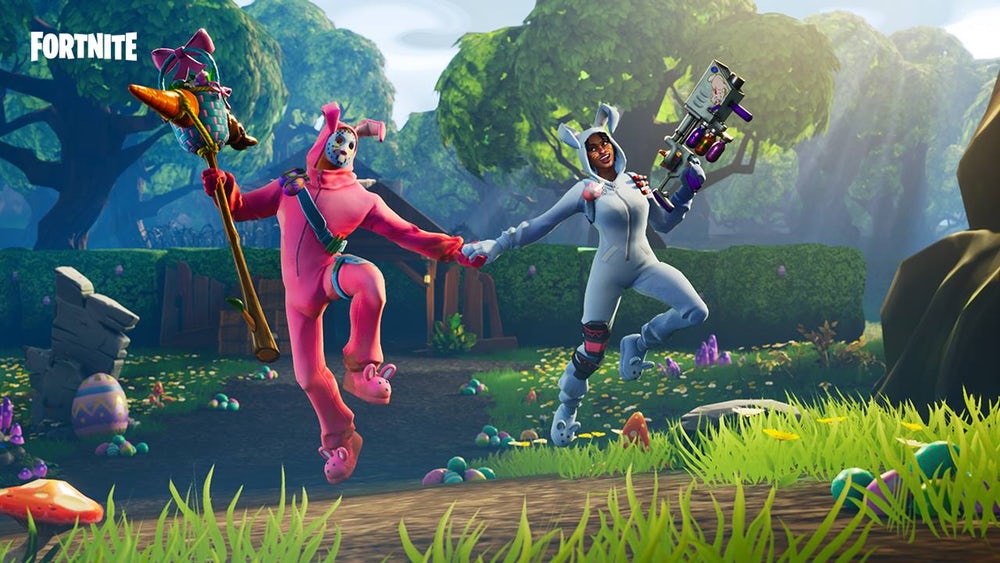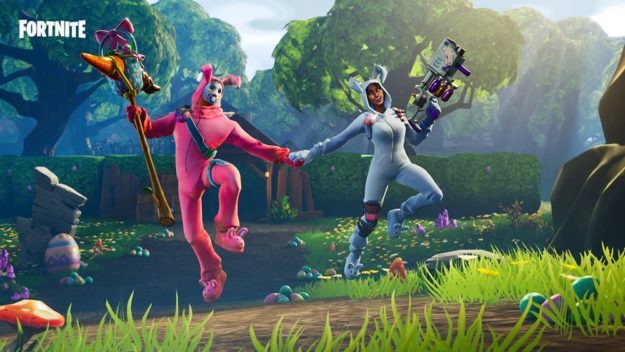
Generation Z: Why Fortnite is so insanely popular right now
Fortnite – if you haven’t heard of it, then welcome back to civilization, Henry David Thoreau. It’s one of the most popular games in the world right now – and the most popular in the booming battle royale genre. For the uninitiated, battle royale games see a hundred or so players thrown together into one game world, and fight for survival in a last-avatar-standing face-off as the “safe zone” relentlessly shrinks, forcing the surviving players closer and closer together to deliver the coup de grace. But why is Fortnite flying where its competitors, like PlayerUnknown’s Battlegrounds (aka PUBG) falter? Let’s take a look, shall we?
It’s free to play
Fortnite’s battle royale mode is totally free to play, so the barrier to entry is a games machine (an iPhone will do) and an internet connection. But where other free-to-play games seem to involve interminable grind to make any meaningful progress, Fortnite plops 100 players onto an island for anarchic larks.
And though there are ways to pay for the game (and its maker Epic Games is absolutely coining it in, make no mistake), they don’t confer any player advantage. They’re purely cosmetic. So whether you pay or not, it’s a game with fairness in its very guts.
It’s colorful and brash (in a lovely way)
Have you seen video games lately? Audible groan. As games consoles and PCs become more powerful, games makers strive to make them ever more realistic, at least in terms of looks. Sometimes that’s a nice thing, but it’s also a bit drab, isn’t it? If I wanted ultra-realism, I’d go outside where the 4K graphics run at a consistent 60 frames-per-second on my current aging hardware.
Contrast the visceral, cartoonish splendor of Fortnite – a veritable orgy of primary colors – like an explosion at a rainbow factory. The visuals are gorgeous, but also welcoming. “This is a game for everyone,” it says, through its technicolor vuvuzela.
It’s hugely social
Fortnite is fun enough alone, but it’s an unabashed joy to play with others. It supports crossplay, so you’re not limited to battling with people with the same games platform as you. But it’s also fun to take turns and spectate – you know, in real life – an increasingly rare thing in gaming these days.
What better way to recover from coming 99th out of 100 than by giving a friend all sorts of useful pointers about what they’re doing wrong? “Shoot the stripy bear!” It’s also enormously popular on streaming services like Twitch – yet another way Fortniters can “engage” each other, as is the modern way.
It’s not really about shooting each other
Part of the genius of Fortnite is its season pass system, known in-game as the Battle Pass. This lets players pony up a relatively modest sum every few months for a host of unlockable player skins, items and activities. So when you parachute into the fray, your first priority may not be to hunt down the opposition but to find, say, a quacking rubber duck (no, really), or a loot chest at a particular location.
But even if you are gunning for the number one spot, the violence is so cartoonish that it’s a far cry from the majority of “gritty” shooters on the market. It’s possible to take someone down with an “axe” made of balloons, for pity’s sake. Stealthy tactics are perfectly legit, and Fortnite lets players build towers and bases to camp out in – so if shooting’s not your bag, why not construct your way to victory, like Christopher Wren with a PlayStation?
Its changing, dynamic world
The world of Fortnite feels alive. Whether you fork out for the Battle Passes or not, each season brings with it a host of changes to Fortnite’s sole map. Recent weeks have teased the start of Season 5 with a launch of a rocket – a one-time only event that you had to be online at a certain time to witness. It was followed by the appearance of energy rifts causing objects from the map to go missing.
Now Season 5 proper has launched, these little hints have come to fruition, spelling wholesale changes to the map, including the addition of an anachronistic Norse longship at the top of a waterfall. Season 4 was ushered in by a comet in the sky, which, when it came crashing to terra firma, led to the appearance of a massive crater – Dusty Divot in the game’s playful aliterative parlance. There’s a greater sense of this weird, unfolding narrative, told through the game world itself, without a single paragraph of tedious expositional text to read. Developers – this is how to do story-telling.
In summary, then…
Fortnite may have been beaten to market by the also huge PUBG, but where that game has struggled to maintain an enthusiastic player base, with unpopular additions, a season pass seen as cynical (PUBG, unlike Fortnite, isn’t free to play in the first place) and ongoing technical issues, Epic Games’ behemoth goes from strength to strength.
Even as recognizable franchises like Call of Duty and Battlefield seek to muscle in on the battle royale format with their forthcoming releases, and numerous other titles ready themselves for market, it would be hard to bet against Fortnite retaining the top spot for the foreseeable future. So far, it hasn’t put a foot wrong. It’s a sheer joy to play.

